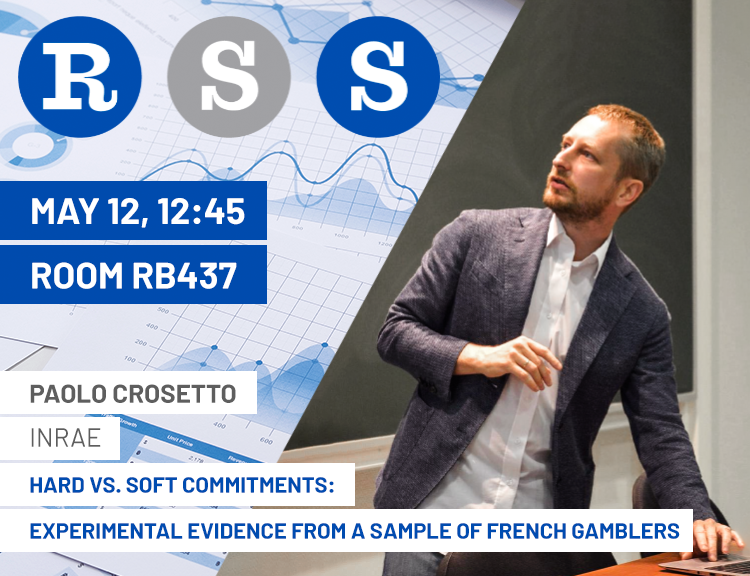Paolo Crosetto (French National Research Institute for Agriculture, Food and Environment) 12.5.2023
V rámci Research Seminar Series in Economics máme tu čest, že nám ve čtvrtek pátek 12.5.2023 od 12:45 do 14:15 v místnosti RB437 bude přednášet prof. Paolo Crosetto (French National Research Institute for Agriculture, Food and Environment) o svém výzkumném projektu s názvem „Hard vs. soft commitments: Experimental evidence from a sample of French gamblers“.
Registration is not required and anyone who would like to attend is warmly invited.
Bio: Paolo Crosetto is a Senior Researcher at INRAE — French National Institute of Research in Agriculture and the Environment. He received his PhD from the University of Milan in 2010, and is a former Research Fellow at the Max Planck Institute for Economics in Jena. His research focuses broadly on Experimental Economics, with both methodological and applied contributions to risk and belief elicitation, applied game theory, context effects, innovation and intellectual property, nutritional labeling.
Abstract: People use commitment devices to formalize and facilitate their goals. Self-commitments are ubiquitous and may take different forms: soft, when the commitment can be broken at a low cost, or hard, when that cost is high. The effects of soft and hard commitments have usually been studied separately. We conduct an online experiment with 1527 individuals representative of a big gambling company’s client population to study the comparative effects of hard and soft commitment devices in a risk taking game. Our results show that asking for a limit leads subjects to reduce their risk-taking even when the limit turns out to be non-binding, i.e., the commitment is soft. Hard commitments lead to slightly lower levels of risk taking. Soft commitments are particularly appealing to implement when there is a low demand for hard commitments. Our experiment shows that offering soft commitment devices can result in behavior change.
For the upcoming seminars, see the RSSE Calendar or Program.
